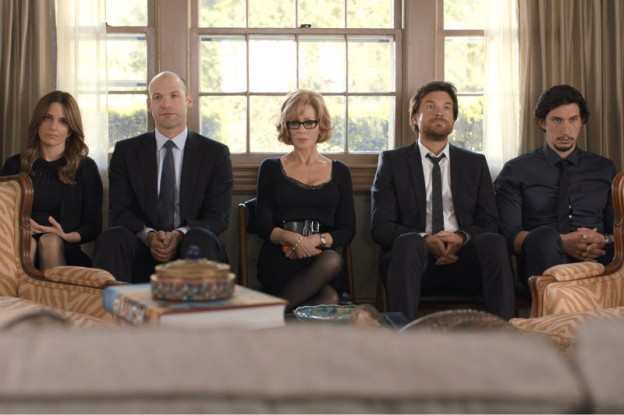Everyone knows that family dynamics can be complicated, to say the least, and cinema has been shedding a spotlight on this truth for ages. Truly, the family comedy/drama films that tackle this specific subject matter have essentially become their own sub-genre at this point, complete with their own cliches and caricatures. Somehow, This Is Where I Leave You manages to both acknowledge the stereotypes therein and transcend them.
Following the death of the family patriarch, the Altman family must spend one week together in their childhood home. Inevitably, old rivalries and romances are reignited, as all four of the Altman siblings find themselves at a crossroads. This is especially true for Judd Altman (Jason Bateman), who is reeling from the dissolution of his marriage.
With This Is Where I Leave You, screenwriter Jonathan Tropper adapts his own novel with ease, deftly sidestepping narrative distractions and attempting (mostly successfully) to balance the story’s numerous characters and subplots. As with any book-to-film transition, certain elements of This Is Where I Leave You are left underdeveloped and partially unexplained (especially the storyline centering on Timothy Olyphant’s Horry), but for the most part, the film manages to come together thematically. The writing comes off as heavy-handed at times, but even in these awkward expositional moments, the winning cast manages to elevate the material.
Bateman is essentially reprising his “dutiful son” persona from Arrested Development here, and though the role isn’t much of a stretch for him, he infuses a bit more emotional complexity than his usual comedic performances. Likewise, Corey Stoll and Tina Fey turn in strong supporting performances as two of Judd’s three siblings, and Rose Byrne delivers a second charming performance this year after her standout work in Neighbors.
Although Goldie Hawn was initially linked to her role, Jane Fonda is perfectly cast as the newly-widowed Altman matriarch, bringing her effortless screen presence and fearless comic timing to the role, and Adam Driver (HBO’s Girls) emerges as the natural standout performance. The actor’s style may be off-putting to some – especially given his character’s brash, devil-may-care attitude – but it’s easy to see why director J.J. Abrams scooped him up for Star Wars: Episode VII. His expressive face and bravado would look particularly striking behind a red lightsaber, for the record.
With This Is Where I Leave You, director Shawn Levy – best known for helming the Night at the Museum films – doesn’t get the chance to do anything particularly ground-breaking visually, but he does demonstrate his ability to balance a comedic tone throughout a tale rife with serious themes and an innately melancholy ensemble. It’s his first R-rated film on a resume largely populated by family-friendly releases and out-and-out comedies. The film opens up his career for a broader assortment of projects, and it should be interesting to see how his skills continue to develop in the years to come.
To demand that every film innovates the medium is an unrealistic expectation. This Is Where I Leave You is, as advertised, a laugh-filled film – featuring a brilliant ensemble cast at the top of its game – that tackles real-life situations and all the complexity that entails with heart, sincerity and honesty. It may not be perfect (name one movie that is, honestly), but Levy, Tropper and their cast have created something memorable here. Whenever the time comes for Tropper (who’s busy with the Cinemax series Banshee) to adapt another of his novels for the screen (Everything Changes please!), this one may be hard to beat.
Rating: 4 out of 5
This Is Where I Leave You stars Jason Bateman, Tina Fey, Adam Driver, Rose Byrne, Corey Stoll, Kathryn Hahn and Jane Fonda. It is directed by Shawn Levy and is now in theaters.


